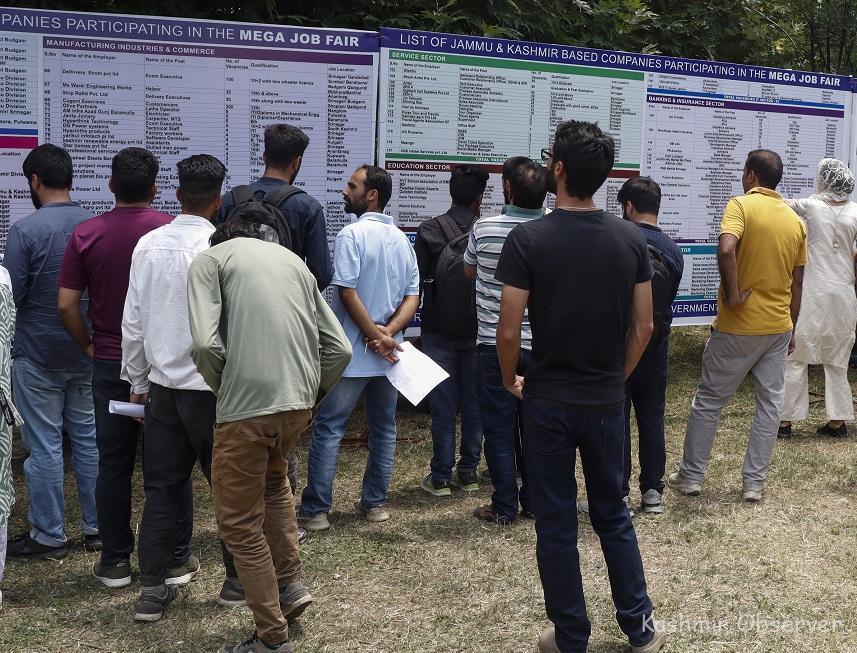
Syllabus Vs. Skills: India's Generation At Risk
KO file photo
By Hidayat Bukhari
India's education system is trapped in a syllabus-first mindset while the world demands skills-first thinkers. Unless learning shifts from rote to relevance, the country's demographic dividend risks becoming a demographic debt.
Each year, India produces an army of graduates-over 1.5 million engineers and millions more in humanities, business, and science. Yet the reality is stark. According to Aspiring Minds' National Employability Report (2024), only one in five engineering graduates is employable in their core field, and fewer than five percent can code to professional standards.
ADVERTISEMENTIndia's universities are minting degrees, not capabilities; certificates, not competence. The result is a generation academically qualified but professionally stranded.
A Crisis of Priorities, Not Potential
This is not a crisis of intelligence but of priorities. For decades, Indian education has worshipped the syllabus-a rigid relic that values completion over comprehension. Professors rush to finish it, students cram to clear it, and universities celebrate“100 percent syllabus coverage” as a success metric.
A 2023 AICTE audit found that two-thirds of engineering programmes in India have not updated their curricula in over five years. Employers see the results instantly: a World Bank study found that 64 percent of firms rated new graduates' job readiness as“below satisfactory”. Meanwhile, NASSCOM estimates Indian companies spend ₹6,000 crore annually retraining new hires before they become productive.
The Syllabus Wall
The syllabus has become the wall separating classrooms from careers-training students to memorize instead of make, to recall instead of reason. Graduates emerge fluent in definitions but untested in design.
The world outside, however, runs on skills. Artificial Intelligence, robotics, renewable energy, and data analytics are redefining work, yet much of India's curriculum still teaches programming paradigms that predate the cloud.
The global AI economy is projected to exceed $1.8 trillion by 2030. To claim even a fraction of that opportunity, India must move decisively from syllabus to skill. Engineers must not just learn to use algorithms-they must learn to build them.
Ironically, Indian minds already lead the world's AI revolution: Aravind Srinivas (Perplexity AI), Sundar Pichai (Google DeepMind), Satya Nadella (Microsoft), and Arvind Krishna (IBM). Their success abroad underscores a painful truth-India exports brilliance because it cannot yet sustain it. The talent exists; the ecosystem does not.
Bringing the Factory to the Campus
The classroom must evolve into a living lab. Universities should embed industries within their campuses-through corporate innovation cells, on-site AI hubs, and applied-learning partnerships. Students should graduate with portfolios, prototypes, and experience, not just transcripts.
Models already exist. Germany's dual education system and Singapore's SkillsFuture framework seamlessly combine lectures with industry exposure. India, with its vast youth base, can do the same-if it dares to redefine learning as doing.
Jammu and Kashmir: A Mirror of the National Dilemma
Nowhere is this transformation more urgent than in Jammu and Kashmir, which mirrors India's larger challenge. The region has over 400,000 students in higher education and produces 25,000–30,000 graduates annually. Yet employability remains fragile.
Official records show that the number of registered companies in J&K has tripled-from 2,318 in 2015 to 8,168 by March 2025. On paper, that looks like progress; in practice, much of it is illusion. Across India, only 65 percent of registered companies are actually operational; in J&K, the proportion is even lower. Many exist only on paper-set up to access land or tax incentives, not to produce or employ. Even within industrial estates, nearly 17 percent of units are non-functional.

Legal Disclaimer:
MENAFN provides the
information “as is” without warranty of any kind. We do not accept
any responsibility or liability for the accuracy, content, images,
videos, licenses, completeness, legality, or reliability of the information
contained in this article. If you have any complaints or copyright
issues related to this article, kindly contact the provider above.
Most popular stories
Market Research
- Thinkmarkets Adds Synthetic Indices To Its Product Offering
- Ethereum Startup Agoralend Opens Fresh Fundraise After Oversubscribed $300,000 Round.
- KOR Closes Series B Funding To Accelerate Global Growth
- Wise Wolves Corporation Launches Unified Brand To Power The Next Era Of Cross-Border Finance
- Lombard And Story Partner To Revolutionize Creator Economy Via Bitcoin-Backed Infrastructure
- FBS AI Assistant Helps Traders Skip Market Noise And Focus On Strategy




















Comments
No comment